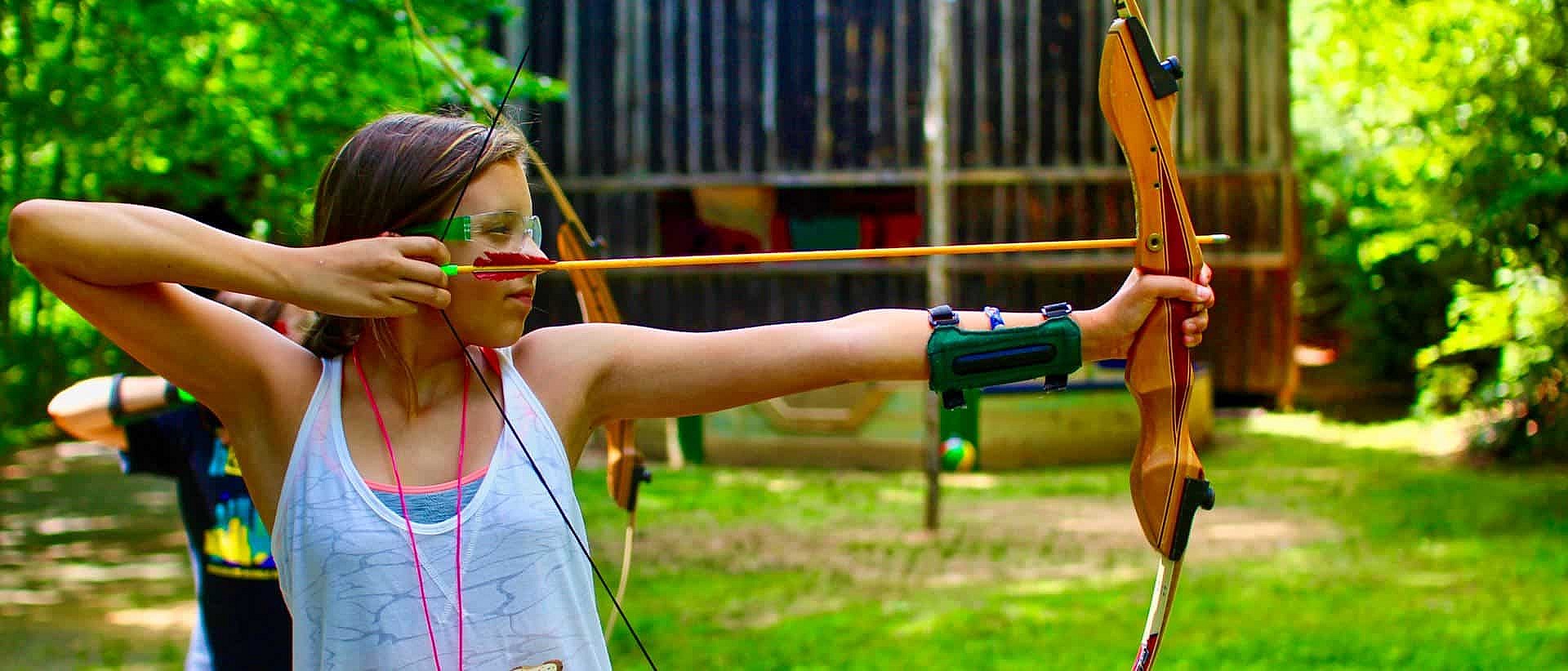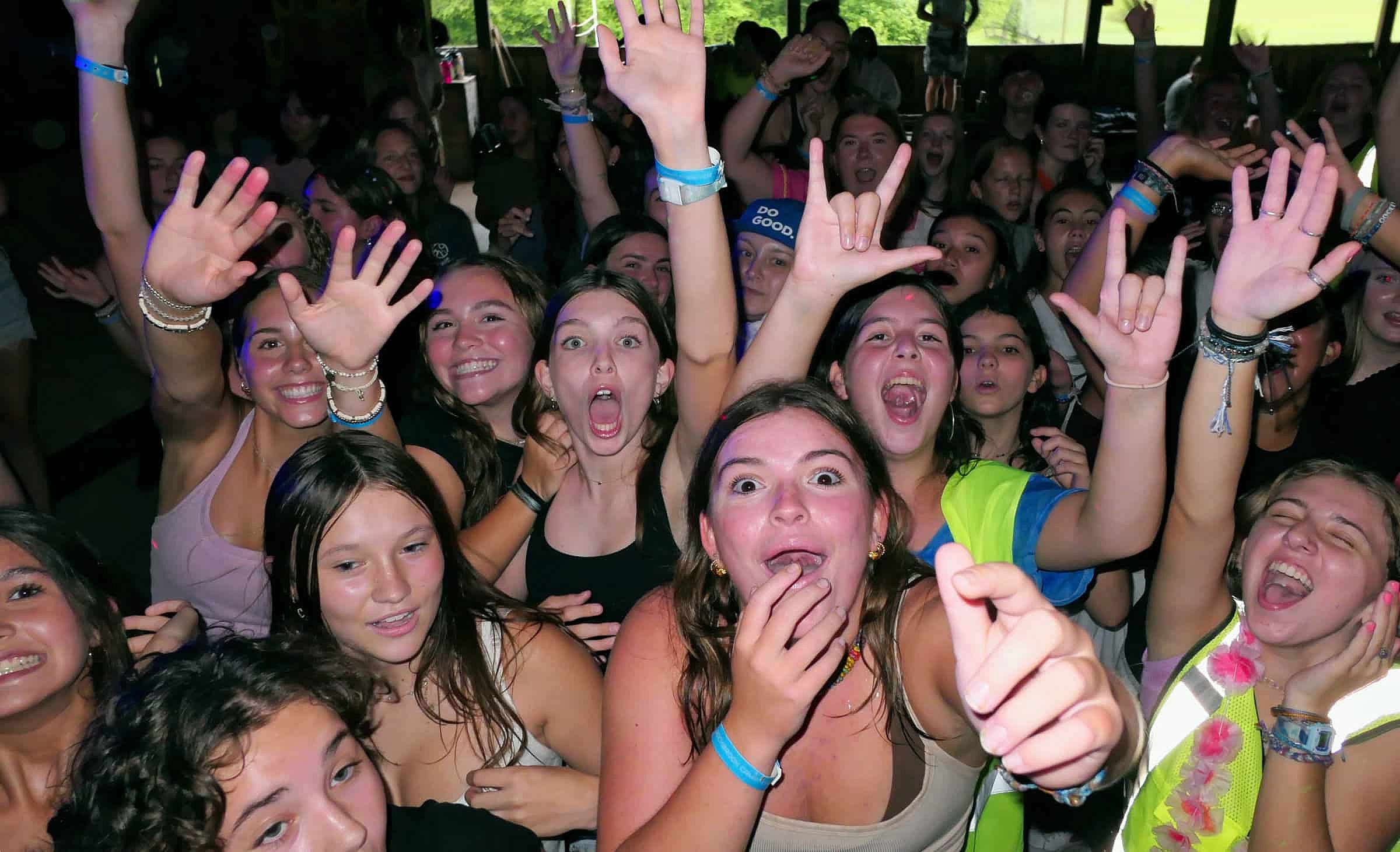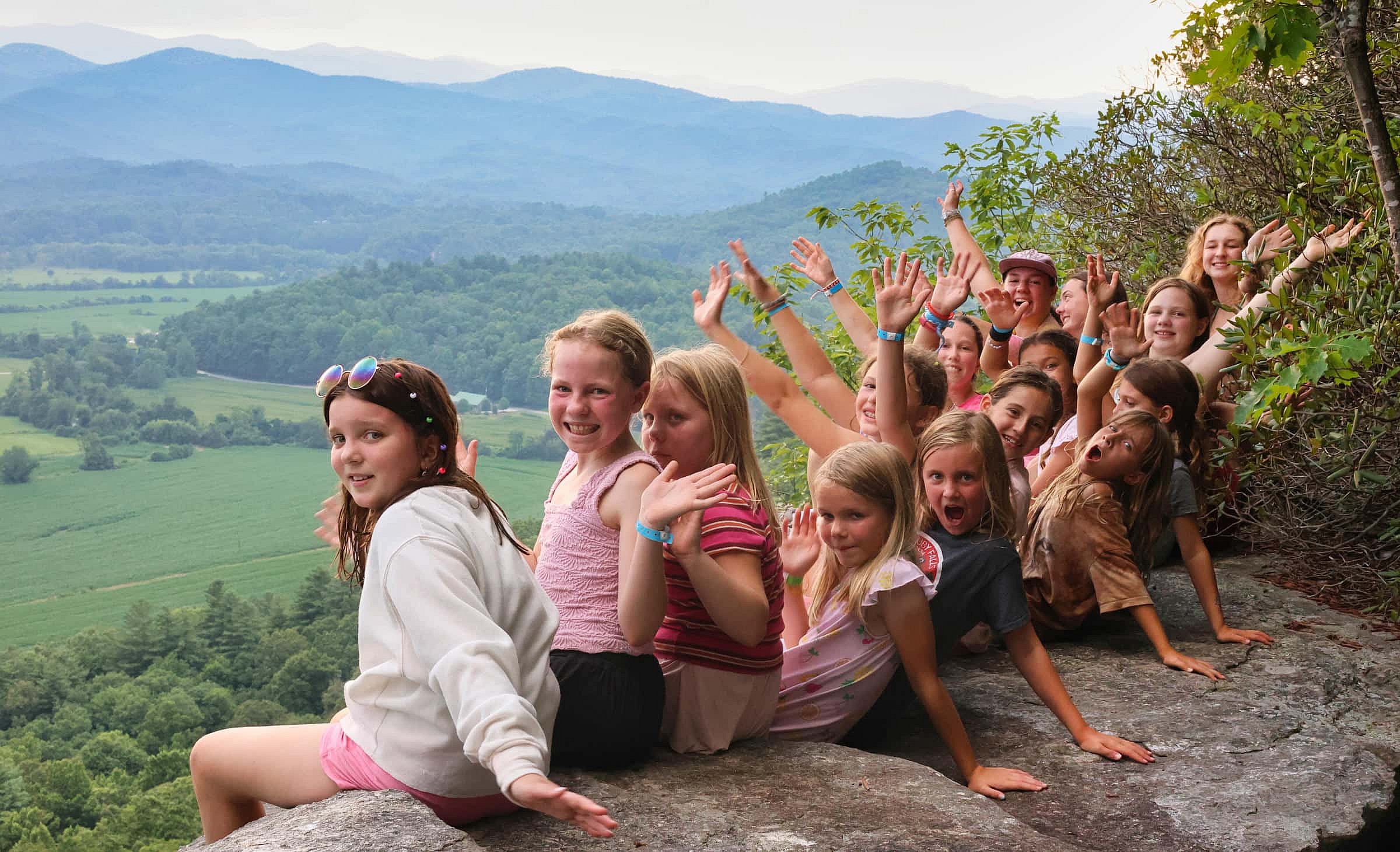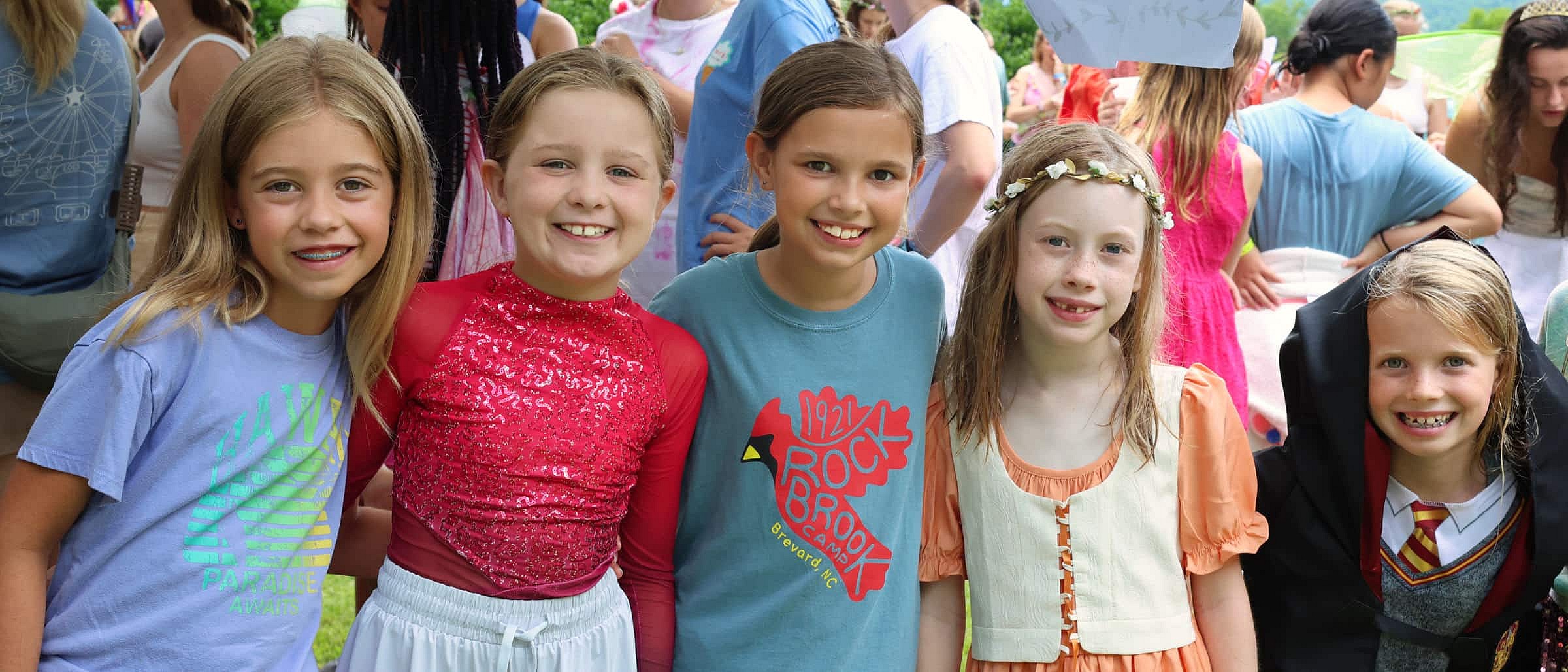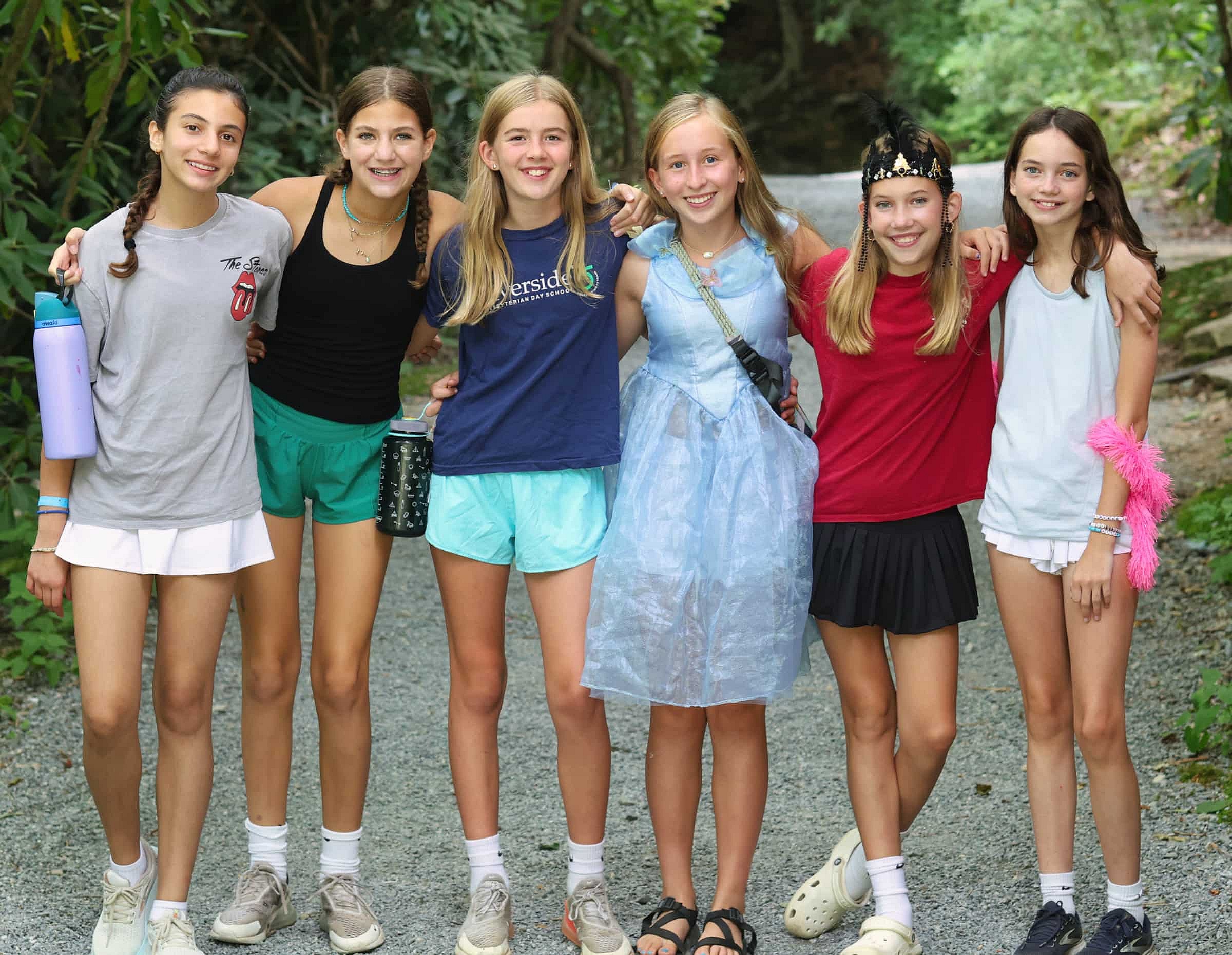A few days ago I wrote a piece that described camp as a haven, as a “sanctuary” free from various detrimental forces and challenges common to modern life. I argued that Rockbrook’s goal is to create a special place where kids can escape the pressures of, for example, being too busy, being judged by peers, being inside and online too much, and so on. Creating this haven is our goal because we know that once girls are protected from these various harmful forces, they experience deeply important opportunities to grow in the most joyous ways. Campers develop different instincts and understandings when they find this unique kind of freedom and relief at camp. It’s marvelous to witness.
One comment I received about that post was from a parent who said, “I wish we adults could experience that sort of haven too.” I’d have to agree! It would be nice to be outside more, doing more real-world things, taking a break from screens and having more time to pay attention to everything around us. It would be nice to be free of social pressures, prejudices, competition and criticisms. We know it feels good to be physically active, to be creative, and to connect more with other people from a place of kindness. An environment offering all of this would be amazing for everyone!
I just have to ask, “Why don’t we?” Why don’t we put in some effort creating at least hints of camp life the rest of the year? If we know what camp is doing— establishing a haven from various negative forces —can’t we oppose those forces at home and at school too, and thereby realize some of those same benefits? To some extent, I think the answer is yes.
A few of the ways Rockbrook creates a haven for girls are structural and could be implemented outside of camp. For example, families could be intentional about spending time outside when they can. Parents could make a conscious effort to slow down their family’s schedule, building in “down time” and other opportunities to relax with each other. We could all make an effort to moderate our consumption of news and other forms of media. We could remember to prioritize physical interactions with the world, not exercise or “working out” per say, but rather exercising all our senses among real-world phenomena.
Perhaps the most consequential way Rockbrook is a haven, yet also a way that could be copied at home, is the absence of smartphone use. At camp we all can ditch our phones and happily carry on, but it probably sounds absurd to suggest doing the same at home. After all, ordinarily your phone is your constant companion, always willing to fill your time at the slightest hint of boredom. You might even agree that most of us are on our phones too much, and you too would prefer we instead had more face-to-face communication and other real-world interactions.
Plus, the evidence is staggering how phone use, especially the role played by social media, is doing significant damage to our physical and mental health. Jonathan Haidt’s new book, The Anxious Generation, makes the case for this quite clearly for young people, and Jaron Lanier makes Ten Arguments for Deleting your Social Media Accounts. For both of these authors, there’s unhappiness built right into how we use our phones, plenty of negative consequences, especially for kids.
Of course, putting down our phones is not easy, even if you wanted to. They’re too powerful and too ingrained in our lives, and most importantly, too widespread. If you tried to add restrictions to your teenager’s phone use, the resistance would most likely be epic, the least of which would be her cries, “but all my friends have their phones!” Without some kind of collective or institutional support, the amount of solo effort required to even moderate phone use would likely be too much. By the way, this is one reason Haidt recommends schools be phone-free. Schools have the institutional clout to align opinions on this.
This highlights a powerful advantage camp has— we’re a community. We’re foremost a tight-knit group of people who live (eat, play, make) together, who experience so much together, and who recognize that how we treat each other (with kindness, care, generosity, compassion) makes a crucial difference. At camp, whenever we have to do something that challenges us individually, we can count on encouragement and support from those around us. And if there’s something that would be hard to do on our own, we are more capable when we do it together, whether it be tackling cabin chores, braving uncomfortable weather, or severing the tether we have with a smartphone.
It’s this community spirit that anchors Rockbrook as a haven for girls. Being a community with shared values, but also with regular shared time together, makes most of what we do possible. We focus on the people around us, building amazing positive (friendly) relationships with them all, adding in a few structural elements— tech-free, outdoor experience, playful silliness, a relaxed pace, etc. —and almost like magic we have a beautiful haven.
My hope is that Rockbrook can provide a positive vision of what life can be. I think it does for those lucky enough to experience it. I also believe that if we want to extend the lovely benefits of camp, we need to first find (or build) a sense of community. Camp proves how powerful it is to bring people together like this. Meeting that challenge would be a good place to start.

